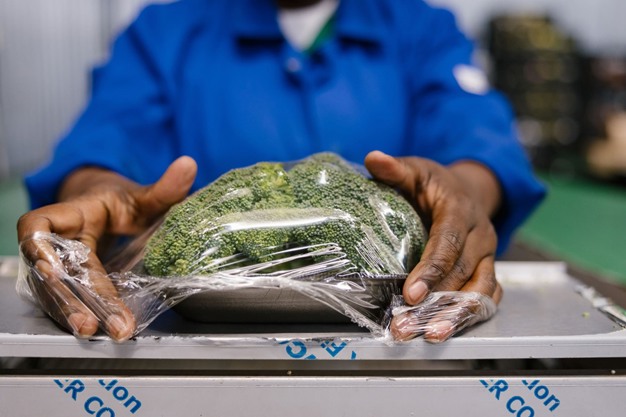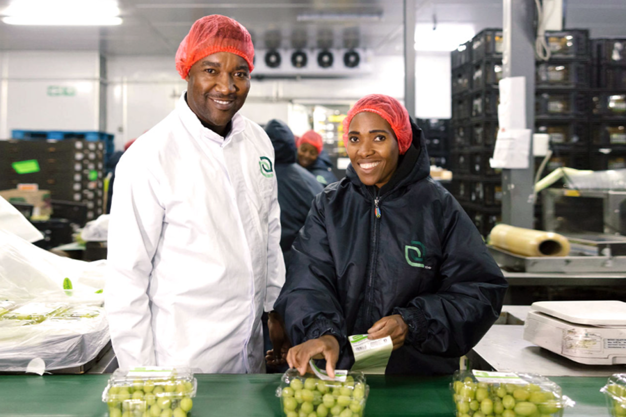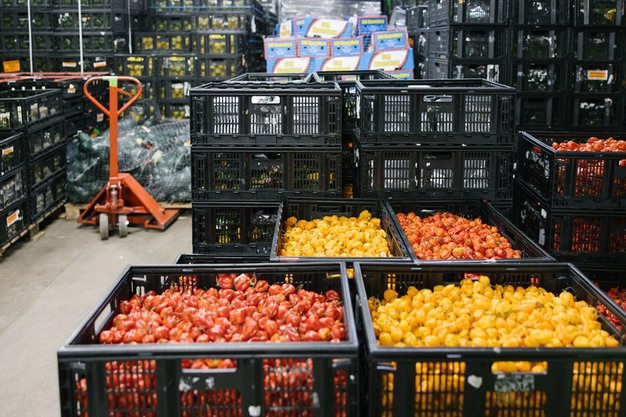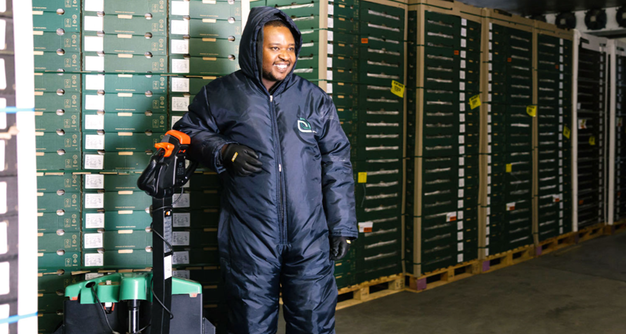Not many people outside the fresh produce industry know what happens at a staging facility, like the one run by Produce Hub in Alberton, Johannesburg, where farmers deliver produce for either a full value-added service (including quality checking, cooling, packing, grading, labeling and crating) or just a daily pick and cross-dock service, before it's sent to retail distribution centres.
Others, like Produce Hub's Western Cape partner Star South import fruit and vegetables (currently mostly citrus and kiwis for retail) which are here prepacked to retail specifications.
"For farmers who are 500 or 600km outside of the city, given transport efficiency and costs, there is an opportunity to use our service for daily deliveries to retail customers," says Colin Mussett, Produce Hub's managing director. "It improves their ability to meet just-in-time daily orders. Some products are delivered to us, packed and delivered into stores in under 48 hours since harvest."

Challenging stonefruit season
"We handle a lot of product, mostly grapes and stonefruit during the summer months. The stonefruit season will go for another two to three weeks, ending probably by the middle of March," Colin says, adding that the local stonefruit season has had many challenges due to extreme and unseasonal weather.
"Volumes are down on some varieties and have finished earlier than past seasons. This puts a lot of pressure on supply and pricing. Nectarines and plums will go on a little longer and cling peaches will most likely run until end of March."
Produce Hub also supplies programmed lines of fruit and vegetables to retailer chains like Spar, Pick n Pay, Spar, Shoprite as well as some ad hoc Fruit & Veg City deliveries.
"We're very transparent in what we do," Mussett maintains. "When we stage a third party's product, say grapes from Star South or Hex Grapes for example, we do not trade in grapes ourselves. We want to give them peace of mind that we're not competing with them."

Their new partners Ilima Farms have a farming operation in Komatipoort where they'll source winter vegetables (peppers, brinjals, chillies and butternuts) with bananas coming into production towards the end of the year.
"The biggest thing we're seeing is the trend in retail aligning to when people get paid, and it's showing us there's a lot less disposable income out there. We're seeing these big month-ends and we're seeing spikes around SASSA [South African Social Security Agency] payment times. It obviously affects our planning and production, upstream too. It makes it quite difficult that a lot of your volume is now squeezed into seven or nine days of retail trade."
Winter period on veg will be interesting
Mussett observes that the risk to planting vegetables is much higher than it has been in the past due to climatic effects, such as heat and hail, plus not having the ability to irrigate because of loadshedding and then not being able to pack and cool - again, because of loadshedding.

These factors have had a huge effect on farmers' decision whether to plant vegetables or not, but so have the vegetable prices of recent months.
"The other side of the coin is that prices have been sky high, so if you are able to supply good quality produce and get it to a retail chain or municipal market, or to a wholesale customer or prepacker you do get a very good return."
He adds that it will be interesting to see what happens this winter.
"We're already seeing on KVIs [key value items] like potatoes that the prices have held because of a shorter supply. Onions are another example, also a big, fastmoving line, and tomatoes. These three commodities are going to be very high-priced again this whole year. Demand is there but there seems to be less product available consistently."
The smaller, more 'sensitive' lines like fancy lettuce or niche products will always be pretty stable, Mussett remarks, due to its higher-income consumer base.
"You'll see the bigger swings on potatoes, onions, peppers, tomatoes and that's where I think there's going to be a huge demand."
Potato quality regresses under high heat
It all depends on how the different growing areas experience the heat and humid, wet weather South Africa has experienced over past few weeks. "You're already seeing there's a short supply of good quality potatoes. There are a lot of potatoes around, but the quality has been shocking for the past two weeks. It's a straightforward function of the product not liking the extremely high temperatures."
Fruit quality in general seems to be less affected; more of it is grown under shade netting. The yield of openland commodities like watermelon was affected by the same factors hampering vegetable production.

He notes that clients in the greater Southern African region have seen value in placing orders at Produce Hub, instead of visiting the large municipal markets in Gauteng. The company procures and packs for buyers from Namibia, Zambia, Botswana, Eswatini and Mozambique, and prepares the export documentation and truck load consolidation services.
Crossborder client numbers have increased and certain items – like red apples, even last season's CA stock – are always in high demand. For street traders, small counts make for more possible sales per box.
Produce Hub Academy
Not just anyone fits into the constant juggling act daily performed at Produce Hub. They realised they needed to look after their own talent needs through learnership positions that combine paid theoretical studies with practical experience, leading to a certificate of competence and, ideally, a new employee.
"Two years ago the Produce Hub Academy started taking in learners," explains Wilzaan Wium, group human resources manager. "It's a very unique type of business that we have but it's difficult to advertise positions since people don't know what a staging coordinator is. Our courses start in April, funded by the Wholesale and Retail Sector Education and Training Authority (W&RSETA) as well as by ourselves. We've even rolled it out to our own employees who didn't have the opportunity to study after school, and we've recently been accredited with AgriSETA as well."
 For more information:
For more information:
Wilzaan Wium
Produce Hub
Tel: +27 11 869 7244
Email: [email protected]
https://www.producehub.co.za/










